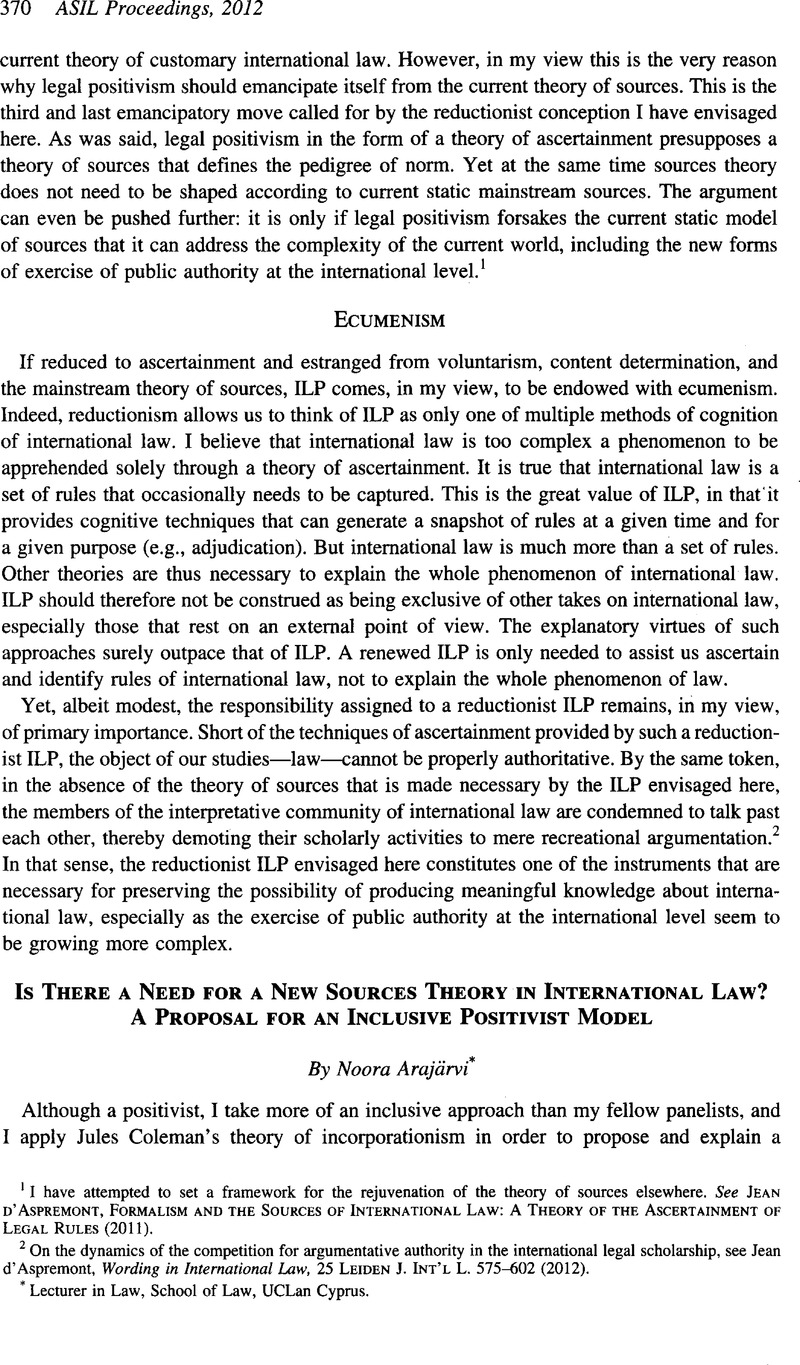No CrossRef data available.
Article contents
Is There a Need for a New Sources Theory in International Law? A Proposal for an Inclusive Positivist Model
Published online by Cambridge University Press: 28 February 2017
Abstract

- Type
- The Modern Positivist Response to Confronting Complexity in International Law
- Information
- Copyright
- Copyright © American Society of International Law 2012
References
1 Most famously, H.L.A. Hart in Chapter 10 of The Concept of Law (1961). See also Hedley Bull, The Anarchical Society: A Study of Order in World Politics (1977). This position has been opposed by many since. See D’Amato, Anthony, The Concept of Custom in International Law 41 (1971)Google Scholar; Thirlway, Hugh, The Sources of International Law, in International Law 138 (Evans, Malcom D. ed., 2003)Google Scholar; Besson, Samantha, Theorizing the Sources of International Law, in The Philosophy of International Law 163, 178 (Besson, Samantha & Tasioulas, John eds., 2010)Google Scholar.
2 Coleman, Jules, The Practice of Principle: in Defence of A Pragmatist Approach to Legal Theory 115 (2001)Google Scholar.
3 See Wil Waluchow, Inclusive Positivism (1994).
4 Coleman, supra note 2, at 109.
5 Id. at 110.
6 “[T]here is in principle no reason why rule of recognition could not incorporate morality in its criteria of legality....” Id. at 154. See also Sellers, Mortimer N.S., Republican Principles of International Law 25 (2006)CrossRefGoogle Scholar.
7 Simma, Bruno & Pulkowski, Dirk, Of Planets and the Universe: Self-Contained Regimes in International Law, 17 Eur. J. Int’l L. 483, 492-93 (2006)CrossRefGoogle Scholar.
8 See, e.g., Besson, supra note 1, at 172; Teitel, Ruti G., Humanity’s Law 170 (2011)Google Scholar; Fuller, Lon, The Morality of Law 39 (1964)Google Scholar; Luban, David, The Rule of Law and Human Dignity: Re-examining Fuller’s Canons, 2 Hague J. On Rule L. 29 (2010)Google Scholar; David Lefkowitz, The Sources of International Law: Some Philosophical Reflections, in The Philosophy of International Law, supra note 1, at 187, 189-91.
9 As Coleman notes: “[T]he more controversial the rule of recognition, The less able it is to provide guidance . . . .” Coleman, supra note 2, at 118.


